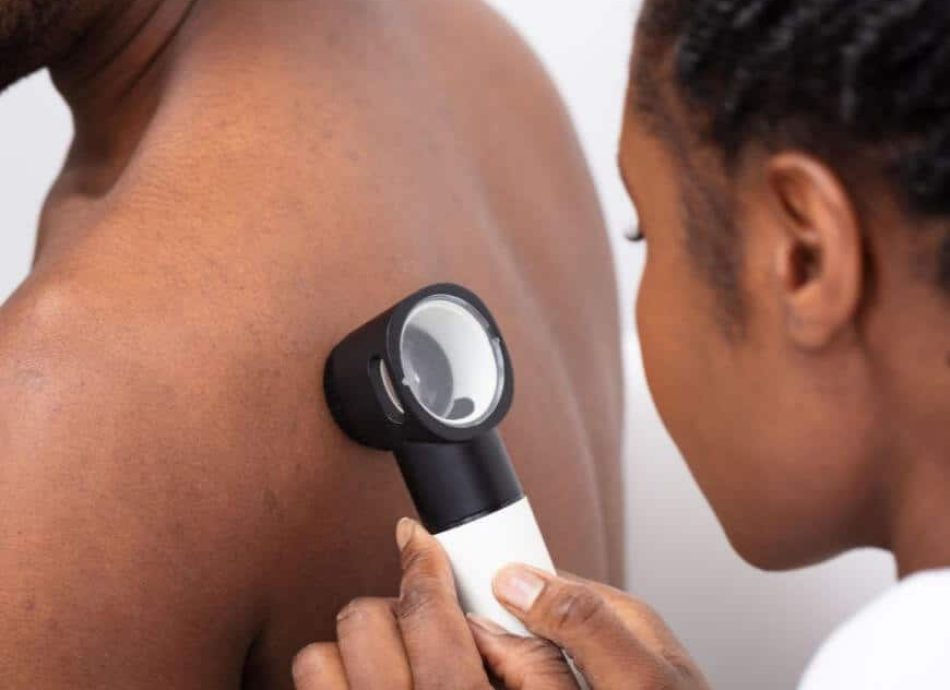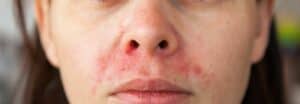Award winning dermatology service, with over 20 years of experience
Short waiting lists, on some occasions offering same week appointments
Safe environment, in Care Quality Commission approved facilities
CONDITIONS WE TREAT WITH MOHS SURGERY
MOHS SURGERY MANCHESTER
Mohs surgery, also referred to as Mohs micrographic surgery (MMS), is a special skin cancer removal technique. Mohs micrographic surgery is considered the most effective technique for treating the two most common types of cancers, basal cell carcinomas (BCCs) and squamous cell carcinomas (SCCs) with BCC’s being the most common skin cancers treated by this technique.
Mohs micrographic surgery has increased in popularity due to its high cure rates (99%), low recurrence rates and also offers the best cosmetic results of any skin cancer treatment.
HOW IS MOHS SURGERY DONE?
Mohs skin cancer surgery is usually performed as a day case procedure in the clinic, which means there is no need to stay in the hospital overnight. A Mohs micrographic surgery unit will have an on-site surgical suite/s and a laboratory for microscopic examination of tissue. Surgery is completed the same day, depending on the extent of the tumour and complexity of reconstruction necessary.
We use local anaesthetic around the target area, which means you will be awake during the entire procedure. The use of local anaesthetic versus general anaesthetic provides numerous benefits, including preventing a lengthy recovery and possible side effects from the general anaesthetic. You are completely numb in the area of the surgery, though, so the procedure is painless after the initial injections have been administered.
- Your skin is numbed using a local anaesthetic injection. We then remove visible cancer and the specimen examined under a microscope to see if there is anything left. This takes around 45-60 minutes. We will ask you to sit in the recovery area while you are waiting.
- Then we draw a diagram (a “Mohs map”) of the removed specimen. The microscope check will show if the cancer has been completely removed. If there is any cancer remaining, it is carefully marked on the Mohs map and tells the surgeon precisely where he/she needs to go back to take further specimens.
- If we need more specimens, we will bring you back into the theatre and take these and then once more check under the microscope. We repeat this cycle until all of the cancer has been fully removed.
You will have a dressing over your wound that will stay in place for 2 – 7 days depending on the repair and may be quite large and bulky. Most patients return to the Dermatology Department to have their sutures removed one week later. In most cases, you will feel quite well after 48 hours though may not wish to return to work for 1 week once we remove the sutures. We perform the operation under local anaesthetic, as a result, you may feel quite tired afterwards and you should plan a more restful 2 days or so after surgery.
If you smoke you should avoid smoking for at least 3-4 days before and after surgery as smoking slows down the wound healing process. Similarly, try and avoid alcohol for 3 – 4 days before and after surgery as this can make your wound bleed more.
WHAT ARE THE BENEFITS OF MOHS SURGERY?
This type of surgery is different from other forms of surgery in that it allows the immediate and complete microscope examination of the specimen. It is not possible for a surgeon to see the roots of a skin cancer under the skin surface without a microscope. Mohs surgery gives the best chance of cure for non-melanoma skin cancers compared to all other treatments- even if the skin cancer has grown back following previous treatment. Mohs surgery is also very valuable for preserving normal skin around important sites such as the nose, lips, eyes or ears and keeping the wound as small as possible.
No treatment for skin cancer is 100% effective. Skin cancers can grow back after any type of treatment, but the risk is much lower following Mohs surgery.
Mohs surgery offers the best cure rate for basal cell cancer compared with all other treatments. The risk of a BCC returning after Mohs surgery is around 1-2% (1 or 2 in 100 patients) for a basal cell carcinoma that has never received treatment before. Around 6-8% (6 to 8 in 100 patients) for basal cell carcinomas that have grown back after treatment for example with standard surgery or radiotherapy.
FREQUENTLY ASKED QUESTIONS
HOW DO I BOOK MOHS SURGERY?
Please book a consultation with one of our consultant dermatologists either via the enquiry form on the website or by giving our clinic a call. Your condition will be assessed and recommended treatment options provided.
DO I NEED TO STAY IN HOSPITAL OVERNIGHT FOLLOWING MOHS TREATMENT?
You will usually be able to return home on the day of the operation and we suggest that you bring a relative or friend with you to accompany you.
WHAT PAIN RELIEF IS AVAILABLE DURING MOHS SURGERY?
The surgery is carried out using local anaesthesia unless an alternative has been discussed with you. You will therefore be awake during the operation however the area being operated on will be numbed so you should feel no discomfort. Some patients may receive pre-medication which will bring on some drowsiness.
DO I NEED TO DO ANYTHING BEFORE MY MOHS SURGERY?
Please abstain from alcohol and avoid all medications containing Aspirin for five days prior to surgery. Unless advised to the contrary, on the day of surgery, please take any regular medications and eat a normal breakfast.
WHAT DO I DO WHILE I AM WAITING FOR THE SAMPLES TO BE TESTED IN THE LAB?
While the removed tissue is being tested for cancerous cells in the lab, you will be able to relax in your room or cubicle. Please bring something to read and Wi-Fi is available. Refreshments are available or you may prefer to bring a snack with you.
WILL MY WOUND NEED REPAIRING AFTER SURGERY?
Depending where the tumour is situated, during your consultation the doctor will have discussed the possible options for repair after the tumour is removed. It may be that the repair will be done during the same appointment once the tumor has been removed or it may be that another surgeon will carry out the procedure at another time. If the wound does not need any further treatment and is to heal naturally, you will be given instructions on the care routine you need to follow.
WHAT ARE THE ALTERNATIVES TO MOHS SURGERY?
There are 2 main alternatives to Mohs surgery: Radiotherapy (x-ray treatment) and removal of the skin cancer in the standard way without the guidance of the microscope checks.
We will discuss the different treatment options with you at your consultation. Not all treatment choices are suitable or possible for your particular skin cancer and they do not generally offer as high a cure rate as Mohs surgery.
WHAT IS THE RECOVERY FROM MOHS SURGERY LIKE?
Mohs surgery results in a surgical wound the size of which reflects the true size of the skin cancer. Mohs surgeons have extensive training in wound reconstruction and plastic surgery and in most cases the Mohs surgeon will perform the wound repair. There are generally 3 ways to repair a wound:
- Natural healing – Allowing the wound to heal naturally without additional surgery. This is normally only possible in certain sites.
- Stitches – Closing the wound directly with stitches
- Skin graft/skin flap – Using a skin graft or skin flap to repair the wound. Some patients will need to transfer to other hospitals for their repair by eye surgeons, ENT surgeons or plastic surgeons. If this applies to you, we will discuss this with you in the clinic in advance. Unless you are being transferred to another hospital you will normally be able to go home the same day.
REQUEST A CALL BACK
Please fill in this form and one of our team will give you a call back to arrange a consultation with one of our expert dermatologists.

HEAR FROM OUR PATIENTS
WHY CHOOSE US FOR MOHS SURGERY IN MANCHESTER?
At Everything Skin Clinic™, we have a team of highly trained Consultant dermatologists, who have completed specialist training in Dermatology and are on the specialist register of the General Medical Council. All our consultants hold substantive contracts with the best Dermatology centres in leading NHS hospitals. Therefore, you can be certain of the highest quality private care.
We offer a range of treatments and can offer one, or a combination of treatments to achieve the best results. Unlike many other clinics, we can offer diagnosis and treatment all under one roof by expert consultant dermatologist, so you know you’ll be in safe hands.
INSIGHTS AND ADVICE

Comprehensive Autumn Skin Care Guide
Autumn, with all its glorious colours, also brings a few challenges for our skin. As the air gets cooler and the leaves change colour, keeping your skin glowing and healthy during the transition from summer can feel a bit tricky. But don’t fret – this

Eczema Awareness Month – Your Eczema Guide
October serves as Eczema Awareness Month. For those of you dealing with eczema, you’ll know the challenge of managing this skin condition all too well. Our commitment throughout October and always, is to enlighten, support and empower you by sharing invaluable insights about its origin,

Demystifying Varicose Veins: Identifying, Controlling And Avoiding
Varicose Disease Awareness Month is dedicated to raising awareness about a common yet often overlooked condition affecting millions worldwide —varicose veins. Throughout September, we aim to shed light on the importance of early detection, treatment options and lifestyle adjustments to manage varicose veins effectively. By
